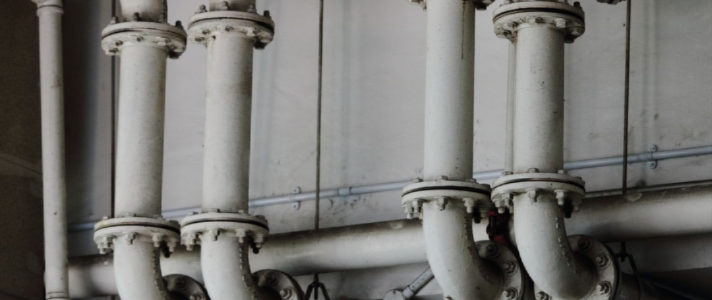Engineering involves the balancing of competing interests. For example, heavier pipes may be more durable and less prone to failure, but heavier pipes cost more and require more robust supports. Adding more supports or stronger supports requires more labor to build and install and more construction materials.
One factor that is often missed in all of this balancing is the effect of those additional supports on the pipe itself. There is a trick question that is raised in engineering statics classes about whether it is better to support a pipeline with two supports (one at each joint) or three supports (one at each joint and one in the middle). In theory, three supports distribute the pipeline’s weight more evenly, with each support carrying less load in a three support system than a two support system.
But in the real world, the middle support adds a stress point to the pipeline. Moreover, the interface between the pipeline and the pipe support can cause pipe erosion and other effects that may result in pipeline failure. Here are three ways pipe supports can compromise long-term pipeline integrity and how pipe pads can prevent it:
Pipe Supports Wear Pipes
One of the primary causes of pipe erosion is a metal-to-metal interface that causes the outer surface of the pipe to wear. When pipelines are exposed to the elements, pipe erosion can be aggravated by dirt, sand, or other abrasives that get between the pipe support and the pipeline. Over time, long-term pipeline integrity can be reduced as the pipeline’s walls narrow and weaken. Abraded pipelines can leak or burst when pressurized.
Furthermore, when the walls of the pipeline weaken, the weight of the pipeline and the fluid inside can cause the walls to deform. This could cause the pipeline to bend at the pipe support.
Pipe wear pads, however, adhere to the surface of the pipeline. This prevents abrasives from getting between the pipeline and pipe support. By reducing abrasion and wear, pipe pads ensure the long-term pipeline integrity.
Pipe Supports Facilitate Exterior Pipe Corrosion
Not only can abrasives get between the pipeline and pipe support, but water can also leak into the interface. This can lead to galvanic corrosion as electrons are exchanged through the moisture trapped between the pipeline and pipe support. Galvanic corrosion will convert iron, which makes up anywhere between 80% and 98% of steel, into iron oxide — the scientific name for rust.
Rust, like wear, can weaken and narrow pipeline walls. As the full weight of the pipeline rests on the pipe support exactly where the wall has been weakened by corrosion, the support can punch through the wall, rupturing the pipeline. For an oil or chemical pipeline, it can be catastrophic when the long-term pipeline integrity is reduced by corrosion.
Galvanic corrosion requires three elements — an anode, a cathode, and an electrolyte. When the iron making up a steel pipeline corrodes, the iron acts as the anode, water acts as the electrolyte, and the pipe support acts as the cathode.
Pipe pads eliminate the electrolyte and the cathode. That is, the pipe pad adheres to the exterior surface of the pipeline. This seals out the water acting as an electrolyte. However, even if the adhesive does not seal the surface of the pipeline from moisture, the pipe pad itself is non-conductive. This means that the pipe pad cannot act as the cathode necessary for galvanic corrosion.
Stated differently, pipe pads electrically insulate pipelines from their supports. This eliminates corrosion by preventing both moisture penetration and metal on metal contact. Because the pipe pads are held in place by adhesive, no chemical mixing, straps, or hot work is required to secure them to pipelines.
Pipe Supports Can Become Stress Points on Pipes
Although it happens slowly over time, land moves. Soil and sand can erode, subside, and sink. This geologic action can be translated through pipe supports to pipes. As a result, pipes can sag, bend, and twist. Combined with abrasion, wear, and corrosion, these stresses can reduce the long-term pipeline integrity.
However, pipe pads can act as a shock absorber to reduce the stress translated from the pipe supports to the pipe.
Pipe pads can be essential to long-term pipeline integrity because of the stresses, wear, and corrosion that occurs between the pipeline and pipe supports.



Leave a Reply